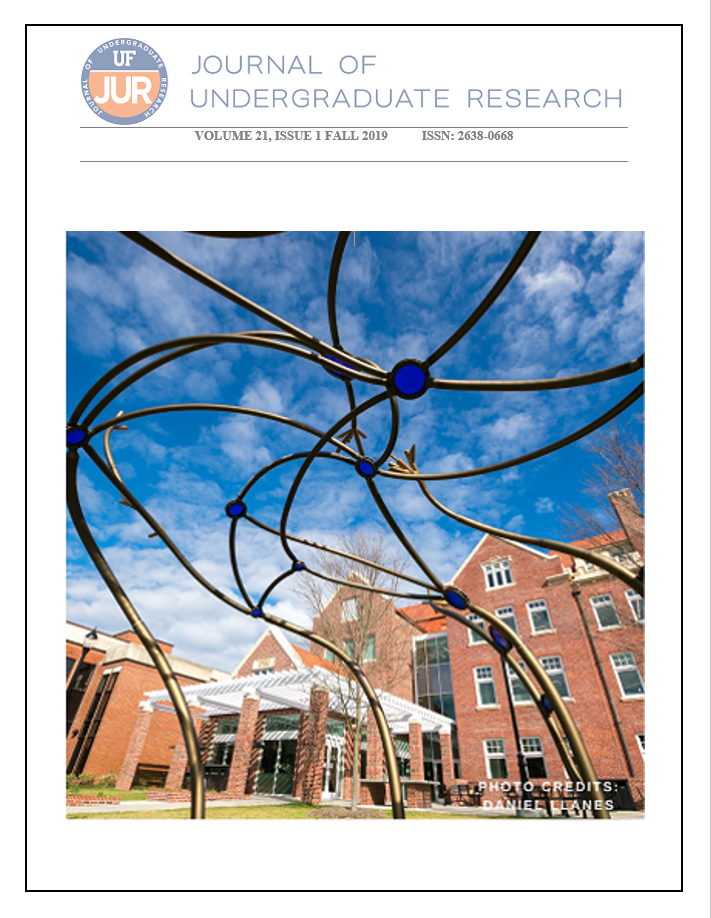Effect of Junction Resistance on the Percolation Resistivity of Metal Nanowire Networks
DOI:
https://doi.org/10.32473/ufjur.v21i1.108495Abstract
There has been significant research interest recently in random networks of one-dimensional elements such as nanotubes and nanowires. In particular, metal nanowire networks exhibit high transmittance, low sheet resistance, mechanical flexibility, and fast deposition. These unique properties make metal nanowire networks promising candidates as transparent, conductive electrodes. In this work, we perform Monte Carlo simulations to study the effect of the wire-to-wire junction resistance on the resistivity and percolation critical exponents of metal nanowire networks. We compute the network resistivity as a function of the wire-to-wire junction resistance over six orders of magnitude, ranging all the way from a junction resistance-dominated to a nanowire resistance-dominated network. We study this effect when other nanowire/device parameters are also varied. We also investigate the effect of the wire-to-wire junction resistance on the percolation critical exponents over a wide range of nanowire and device parameters. The junction resistance plays a critical role in determining both the resistivity and the critical exponents of metal nanowire networks. These studies illustrate how the junction resistance affects the macroscopic resistivity of the network. They also show that Monte Carlo simulations are an essential tool for providing insights into the percolation resistivity of transparent, conductive metal nanowire networks.
Downloads
Published
Issue
Section
License
Some journals stipulate that submitted articles cannot be under consideration for publication or published in another journal. The student-author and mentor have the option of determining which journal the paper will be submitted to first. UF JUR accepts papers that have been published in other journals or might be published in the future. It is the responsibility of the student-author and mentor to determine whether another journal will accept a paper that has been published in UF JUR.

